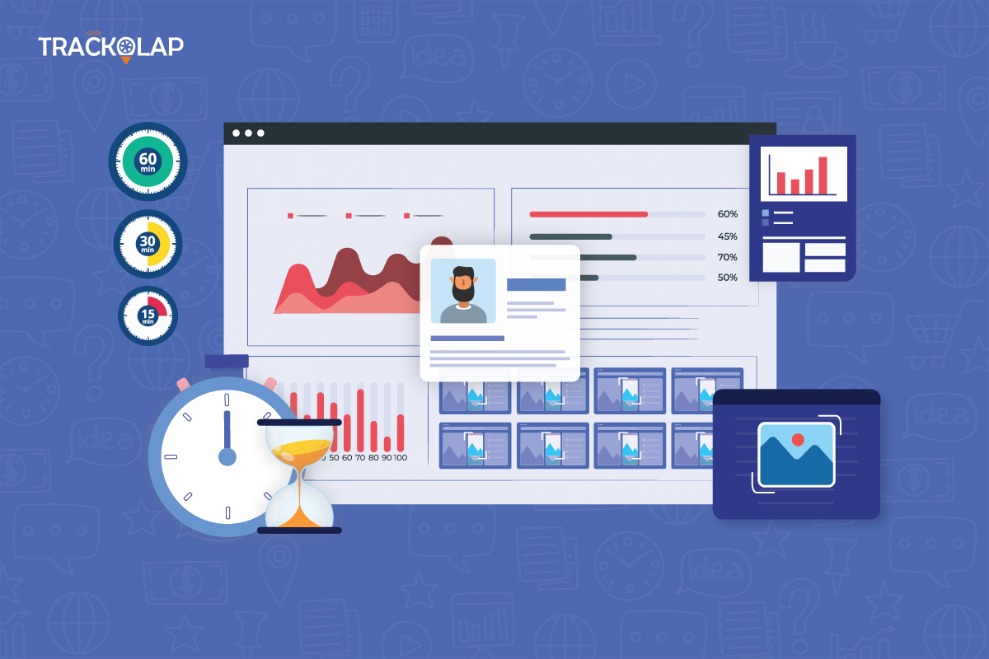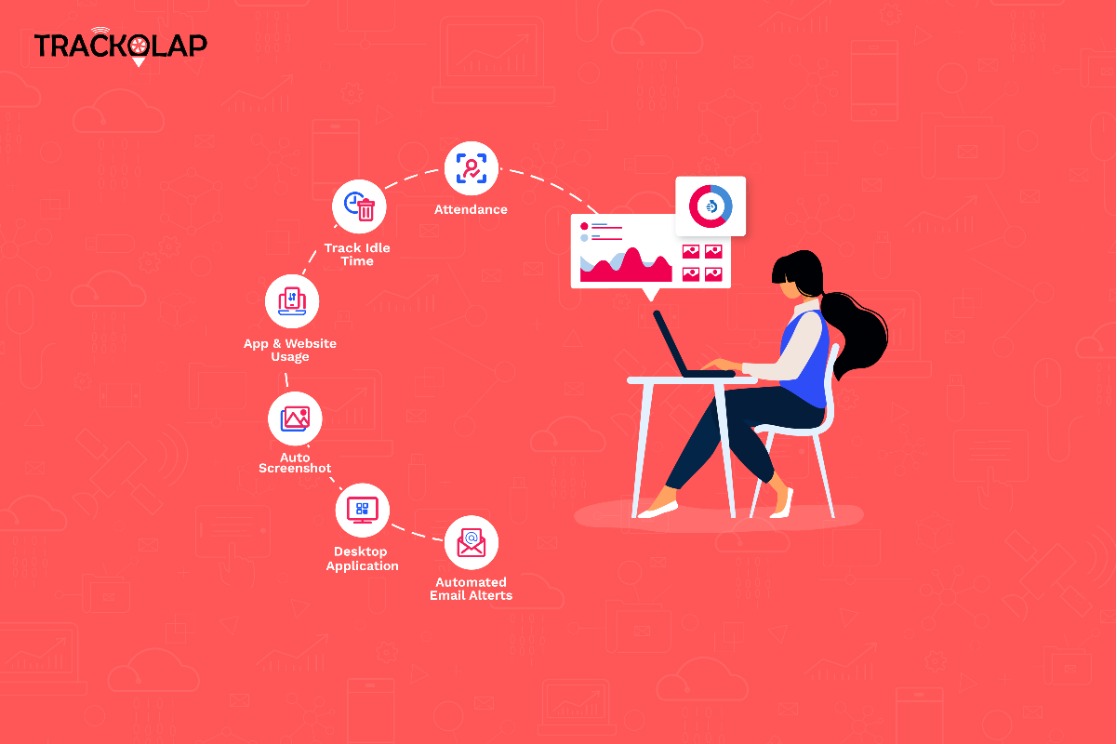
How to Keep “Work from Home” Employees Accountable
Today, one of the biggest challenges of managing remote employees is setting accountability. The setting work from home accountability is very hard because there is a screen between you and your team, so you can’t easily fathom how to keep work from employees accountable.
Now, we never share a problem without an awesome solution. At TrackOlap, we constantly have one-on-one interaction with remote working teams, and they all wished for a work from home accountability log system that can help them set remote team accountability.
Since we don’t do anything half-heartedly, we created a complete desktop monitoring system to keep the remote team accountable. Let us show you how to keep remote workers accountable.
How to Keep “Work from Home” Employees Accountable
In a survey, 25% of business leaders said that 10% to 20% of their workers avoid accountability. If we talk about remote work structure, this number might increase because employers have no direct access to employees, so they can’t set accountability properly.
Today, employers require a robust work from home accountability log system that can define the role of each employee and make sure they are accountable to their roles. And, our desktop monitoring and employee efficiency software are exactly that.
You can overcome all challenges of managing remote employees with an automated SaaS platform, such as:
Set Specific & Measurable Goals
Work from home accountability processes starts by setting specific and measurable goals. Managers have to define business goals that they want their remote employees to achieve. The condition here is that goals have to be measurable.
For example, a manager setting honesty as a goal isn’t something that can be easily measured. But, when productivity metrics are used to measure goals, it gives a definite answer.
So, managers can assign tasks to employees through a centralized dashboard along with a timeline to complete them. The timeline will be a measurable factor to set an employee’s accountability to complete the task given under timeframe.
If an employee isn’t able to complete an assigned task under the given timeframe, he or she will be fully accountable for it. This way, managers can easily know which employee to contact in case of a problem.
Focus on Independent Accountability
Usually, companies analyze the collective team’s work from home accountability log. This method is good to analyze your team's overall productivity, but when you want a 100% outcome from each employee, collective reporting fails.
Thus, using our dashboard, you can set your individual employees' accountability and goals within a few steps. And monitor and control them easily through the same platform. This way, you can know which employee is accountable for which task, and you can easily reward or punish them based on real-time data.
Trust your Team to Work Independently
You can run your remote office only if you trust your employees. If you don’t trust your employees, you can’t gain remote work culture benefits—period. And, if you are lucky enough to have a trustworthy remote team, let them work independently.
You should just provide a timeline to complete a task for your remote workers. Rest you should leave upon them. Thus, when you give freedom to your employees, they feel more responsible for completing their job on time.
Now, it has been challenging for remote employees to give full freedom to their trusted workers because they don’t want to deal with customers' complaints. To address this concern, we have an embedded automatic alert system in our task management software that immediately notifies you when your employees complete or delay their tasks. So, without any fear, give controlled freedom to your employees.
Smooth Team Collaboration
Accountability and collaboration swings together. If you want your team to be accountable for their actions, you have to build a strong remote collaboration flow.
When we talked with different remote teams, we found that most employees are facing communicating or collaborating problems. They can’t reach managers and colleagues quickly, which results in latency and delay.
To help employees, we have embedded a powerful communication system inside the employee efficiency software. With this communication platform, employees can easily connect with managers and other employees to get immediate assistance. The software will send immediate notifications on the manager's dashboard to fasten up the communication process.
Daily or Weekly Check-Ins
There are two types of tasks—transactional and transformative. You can easily manage transactional tasks with to-do lists. Transformative tasks are those that require someone to think proactively and in the best interests of the company. These tasks can't be managed with a simple to-do list.
You need a complete 360-degree overview of your remote team to manage transformative tasks. With the daily or weekly check-ins, you can establish accountability in the transformative tasks.
However, it isn't feasible for a large remote team’s manager to regularly monitor and analyze. Thus, we have an automatic report generation option that allows managers to produce real-time task performance reports daily or weekly. They can even convert reports into graphs for quick analysis.
Work on Transparency
After trust, the second most important thing to sustain a remote team is transparency. Transparency motivates your remote workers to trust your company and be accountable for their job.
For example, you should share the same information with your entire team. If you share different information with each employee, it will create confusion and workplace conflicts.
Due to this reason, we have created a centralized dashboard where every team can access the same information. With transparency, you can easily overcome various challenges of managing remote teams.
Conclusion
It doesn’t matter whether you are running a remote or physical office; accountability is the most resilient factor to build a good team. When your team is accountable for their own actions, you won’t have too much control or monitor them. Therefore, to ease your stress, work on building an accountable remote team.
At TrackOlap, we can help you set remote employees' accountability; just give us a call to know more!






























 Back to Blogs
Back to Blogs










 D-5 Sector-59, Noida, Uttar Pradesh (India)
D-5 Sector-59, Noida, Uttar Pradesh (India) contactus@trackolap.com
contactus@trackolap.com 7011494501
7011494501










